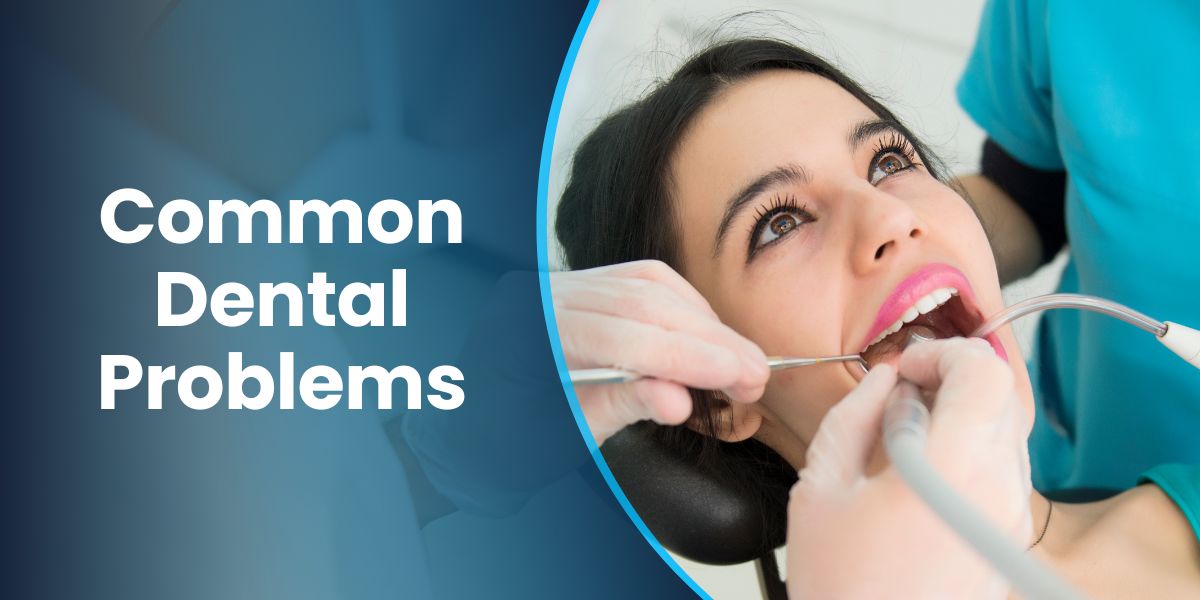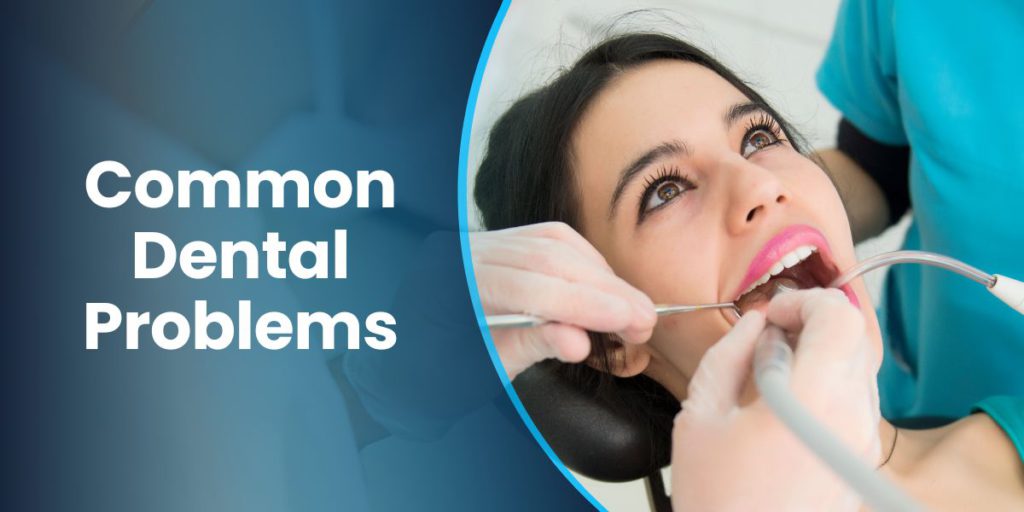
Maintaining good oral health is crucial for overall well-being, yet dental issues are among the most prevalent health problems worldwide. In this article, we will explore three common dental problems, their causes, symptoms, and effective treatments. By understanding these issues, individuals can take preventive measures and maintain healthy teeth and gums.
1. Tooth Decay (Cavities)
What Is Tooth Decay?
Tooth decay, also known as cavities, occurs when the enamel, the hard outer layer of the tooth, is damaged by acid-producing bacteria. This is one of the most widespread dental problems affecting people of all ages, including children.
Causes of Tooth Decay
- Poor Oral Hygiene: Failure to brush and floss regularly allows plaque to accumulate, leading to acid production.
- Sugary and Acidic Foods: Consuming foods and drinks high in sugar and acid promotes bacterial growth.
- Dry Mouth: Lack of saliva reduces the mouth’s ability to neutralize acids.
- Genetics: Some individuals are more prone to cavities due to hereditary factors.
Symptoms of Tooth Decay
- Toothache or sensitivity when consuming hot, cold, or sweet foods.
- Visible holes or pits in teeth.
- Discoloration, such as black, brown, or white spots.
- Pain when biting or chewing.
Treatment for Tooth Decay
- Fillings: Dentists remove the decayed portion and fill the cavity with materials like composite resin or amalgam.
- Crowns: For extensive decay, a crown may be placed to restore the tooth’s shape and function.
- Root Canal: In severe cases, when decay reaches the pulp, a root canal may be necessary.
- Preventive Measures: Regular brushing, flossing, and using fluoride toothpaste can help prevent cavities.
2. Gum Disease (Periodontal Disease)
What Is Gum Disease?
Gum disease is a condition that affects the gums and the bones supporting the teeth. It starts as gingivitis, an inflammation of the gums, and can progress to periodontitis if untreated.
Causes of Gum Disease
- Plaque Buildup: Accumulation of plaque along the gumline is the primary cause.
- Smoking: Tobacco use increases the risk of gum infections.
- Hormonal Changes: Pregnancy and hormonal fluctuations can make gums more sensitive.
- Diabetes: High blood sugar levels can contribute to gum problems.
- Medications: Certain drugs can reduce saliva flow, promoting gum disease.
Symptoms of Gum Disease
- Red, swollen, or bleeding gums.
- Bad breath or a bad taste in the mouth.
- Receding gums, making teeth appear longer.
- Loose or shifting teeth.
- Painful chewing.
Treatment for Gum Disease
- Professional Cleaning: Dentists perform scaling and root planing to remove plaque and tartar.
- Antibiotics: Infections may be treated with antibiotic gels or oral medications.
- Surgery: In advanced cases, procedures like flap surgery or bone grafting may be needed.
- Prevention Tips: Regular dental check-ups, proper brushing techniques, and quitting smoking can significantly reduce the risk.
3. Tooth Sensitivity
What Is Tooth Sensitivity?
Tooth sensitivity is a common condition characterized by discomfort or pain when teeth are exposed to certain stimuli, such as hot, cold, sweet, or acidic foods and drinks.
Causes of Tooth Sensitivity
- Worn Enamel: Brushing too hard or using abrasive toothpaste can wear down enamel.
- Receding Gums: Exposed dentin due to gum recession increases sensitivity.
- Tooth Grinding: Bruxism can wear down teeth and expose sensitive layers.
- Dental Procedures: Recent cleanings, fillings, or whitening treatments may cause temporary sensitivity.
- Decay or Damage: Cracks, chips, or untreated cavities can lead to sensitivity.
Symptoms of Tooth Sensitivity
- Sharp pain when consuming hot, cold, sweet, or acidic foods.
- Discomfort during brushing or flossing.
- Intermittent or constant sensitivity in specific teeth.
Treatment for Tooth Sensitivity
- Desensitizing Toothpaste: Specially formulated toothpaste can block pain signals.
- Fluoride Treatments: Dentists may apply fluoride to strengthen enamel.
- Dental Bonding: Exposed roots can be treated with bonding materials.
- Night Guards: For bruxism-related sensitivity, wearing a night guard can prevent further damage.
- Lifestyle Changes: Avoiding acidic foods and using a soft-bristled toothbrush can help manage sensitivity.
Preventive Tips for Overall Dental Health
- Brush Twice Daily: Use a fluoride toothpaste and brush for at least two minutes.
- Floss Daily: Flossing removes plaque and food particles from between teeth.
- Regular Dental Visits: Schedule check-ups and cleanings every six months.
- Healthy Diet: Limit sugary and acidic foods, and eat calcium-rich foods for strong teeth.
- Hydration: Drink plenty of water to maintain saliva production and rinse away food particles.
Consult Dr. Saswati Sahu at Smile Curve Dental Clinic, the best dentist in Kharadi for all your dental care needs. Dr. Saswati Sahu provides a range of treatments, including regular check-ups, teeth cleaning, cosmetic dentistry, and braces, all in a friendly and comfortable environment. The clinic uses modern equipment and follows strict hygiene standards, ensuring safe and effective care.


